- Home
- Alexandre Dumas
Vingt ans après. English Page 21
Vingt ans après. English Read online
Page 21
21. The Abbe Scarron.
There was once in the Rue des Tournelles a house known by all the sedanchairmen and footmen of Paris, and yet, nevertheless, this house wasneither that of a great lord nor of a rich man. There was neitherdining, nor playing at cards, nor dancing in that house. Nevertheless,it was the rendezvous of the great world and all Paris went there. Itwas the abode of the little Abbe Scarron.
In the home of the witty abbe dwelt incessant laughter; there all theitems of the day had their source and were so quickly transformed,misrepresented, metamorphosed, some into epigrams, some into falsehoods,that every one was anxious to pass an hour with little Scarron,listening to what he said, reporting it to others.
The diminutive Abbe Scarron, who, however, was an abbe only because heowned an abbey, and not because he was in orders, had formerly been oneof the gayest prebendaries in the town of Mans, which he inhabited. On aday of the carnival he had taken a notion to provide an unusualentertainment for that good town, of which he was the life and soul. Hehad made his valet cover him with honey; then, opening a feather bed, hehad rolled in it and had thus become the most grotesque fowl it ispossible to imagine. He then began to visit his friends of both sexes,in that strange costume. At first he had been followed throughastonishment, then with derisive shouts, then the porters had insultedhim, then children had thrown stones at him, and finally he was obligedto run, to escape the missiles. As soon as he took to flight every onepursued him, until, pressed on all sides, Scarron found no way ofescaping his escort, except by throwing himself into the river; but thewater was icy cold. Scarron was heated, the cold seized on him, and whenhe reached the farther bank he found himself crippled.
Every means had been employed in vain to restore the use of his limbs.He had been subjected to a severe disciplinary course of medicine, atlength he sent away all his doctors, declaring that he preferred thedisease to the treatment, and came to Paris, where the fame of his withad preceded him. There he had a chair made on his own plan, and oneday, visiting Anne of Austria in this chair, she asked him, charmed asshe was with his wit, if he did not wish for a title.
"Yes, your majesty, there is a title which I covet much," repliedScarron.
"And what is that?"
"That of being your invalid," answered Scarron.
So he was called the queen's invalid, with a pension of fifteen hundredfrancs.
From that lucky moment Scarron led a happy life, spending both incomeand principal. One day, however, an emissary of the cardinal's gave himto understand that he was wrong in receiving the coadjutor so often.
"And why?" asked Scarron; "is he not a man of good birth?"
"Certainly."
"Agreeable?"
"Undeniably."
"Witty?"
"He has, unfortunately, too much wit."
"Well, then, why do you wish me to give up seeing such a man?"
"Because he is an enemy."
"Of whom?"
"Of the cardinal."
"What?" answered Scarron, "I continue to receive Monsieur GillesDespreaux, who thinks ill of me, and you wish me to give up seeing thecoadjutor, because he thinks ill of another man. Impossible!"
The conversation had rested there and Scarron, through sheer obstinacy,had seen Monsieur de Gondy only the more frequently.
Now, the very morning of which we speak was that of his quarter-daypayment, and Scarron, as usual, had sent his servant to get his money atthe pension-office, but the man had returned and said that thegovernment had no more money to give Monsieur Scarron.
It was on Thursday, the abbe's reception day; people went there incrowds. The cardinal's refusal to pay the pension was known about thetown in half an hour and he was abused with wit and vehemence.
In the Rue Saint Honore Athos fell in with two gentlemen whom he did notknow, on horseback like himself, followed by a lackey like himself, andgoing in the same direction that he was. One of them, hat in hand, saidto him:
"Would you believe it, monsieur? that contemptible Mazarin has stoppedpoor Scarron's pension."
"That is unreasonable," said Athos, saluting in his turn the twocavaliers. And they separated with courteous gestures.
"It happens well that we are going there this evening," said Athos tothe vicomte; "we will pay our compliments to that poor man."
"What, then, is this Monsieur Scarron, who thus puts all Paris incommotion? Is he some minister out of office?"
"Oh, no, not at all, vicomte," Athos replied; "he is simply a gentlemanof great genius who has fallen into disgrace with the cardinal throughhaving written certain verses against him."
"Do gentlemen, then, make verses?" asked Raoul, naively, "I thought itwas derogatory."
"So it is, my dear vicomte," said Athos, laughing, "to make bad ones;but to make good ones increases fame--witness Monsieur de Rotrou.Nevertheless," he continued, in the tone of one who gives wholesomeadvice, "I think it is better not to make them."
"Then," said Raoul, "this Monsieur Scarron is a poet?"
"Yes; you are warned, vicomte. Consider well what you do in that house.Talk only by gestures, or rather always listen."
"Yes, monsieur," replied Raoul.
"You will see me talking with one of my friends, the Abbe d'Herblay, ofwhom you have often heard me speak."
"I remember him, monsieur."
"Come near to us from time to time, as if to speak; but do not speak,and do not listen. That little stratagem may serve to keep offinterlopers."
"Very well, monsieur; I will obey you at all points."
Athos made two visits in Paris; at seven o'clock he and Raoul directedtheir steps to the Rue des Tournelles; it was stopped by porters, horsesand footmen. Athos forced his way through and entered, followed by theyoung man. The first person that struck him on his entrance was Aramis,planted near a great chair on castors, very large, covered with a canopyof tapestry, under which there moved, enveloped in a quilt of brocade, alittle face, youngish, very merry, somewhat pallid, whilst its eyesnever ceased to express a sentiment at once lively, intellectual, andamiable. This was the Abbe Scarron, always laughing, joking,complimenting--yet suffering--and toying nervously with a small switch.
Around this kind of rolling tent pressed a crowd of gentlemen andladies. The room was neatly, comfortably furnished. Large valances ofsilk, embroidered with flowers of gay colors, which were rather faded,fell from the wide windows; the fittings of the room were simple, but inexcellent taste. Two well trained servingmen were in attendance on thecompany. On perceiving Athos, Aramis advanced toward him, took him bythe hand and presented him to Scarron. Raoul remained silent, for he wasnot prepared for the dignity of the bel esprit.
After some minutes the door opened and a footman announced MademoisellePaulet.
Athos touched the shoulder of the vicomte.
"Look at this lady, Raoul, she is an historic personage; it was to visither King Henry IV. was going when he was assassinated."
Every one thronged around Mademoiselle Paulet, for she was always verymuch the fashion. She was a tall woman, with a slender figure and aforest of golden curls, such as Raphael was fond of and Titian haspainted all his Magdalens with. This fawn-colored hair, or, perhaps thesort of ascendancy which she had over other women, gave her the name of"La Lionne." Mademoiselle Paulet took her accustomed seat, but beforesitting down, she cast, in all her queen-like grandeur, a look aroundthe room, and her eyes rested on Raoul.
Athos smiled.
"Mademoiselle Paulet has observed you, vicomte; go and bow to her; don'ttry to appear anything but what you are, a true country youth; on noaccount speak to her of Henry IV."
"When shall we two walk together?" Athos then said to Aramis.
"Presently--there are not a sufficient number of people here yet; weshall be remarked."
At this moment the door opened and in walked the coadjutor.
At this name every one looked around, for his was already a verycelebrated name. Athos did the same. He knew the Abbe de Gondy o
nly byreport.
He saw a little dark man, ill made and awkward with his hands ineverything--except drawing a sword and firing a pistol--with somethinghaughty and contemptuous in his face.
Scarron turned around toward him and came to meet him in his chair.
"Well," said the coadjutor, on seeing him, "you are in disgrace, then,abbe?"
This was the orthodox phrase. It had been said that evening a hundredtimes--and Scarron was at his hundredth bon mot on the subject; he wasvery nearly at the end of his humoristic tether, but one despairingeffort saved him.
"Monsieur, the Cardinal Mazarin has been so kind as to think of me," hesaid.
"But how can you continue to receive us?" asked the coadjutor; "if yourincome is lessened I shall be obliged to make you a canon of NotreDame."
"Oh, no!" cried Scarron, "I should compromise you too much."
"Perhaps you have resources of which we are ignorant?"
"I shall borrow from the queen."
"But her majesty has no property," interposed Aramis.
At this moment the door opened and Madame de Chevreuse was announced.Every one arose. Scarron turned his chair toward the door, Raoulblushed, Athos made a sign to Aramis, who went and hid himself in theenclosure of a window.
In the midst of all the compliments that awaited her on her entrance,the duchess seemed to be looking for some one; at last she found outRaoul and her eyes sparkled; she perceived Athos and became thoughtful;she saw Aramis in the seclusion of the window and gave a start ofsurprise behind her fan.
"Apropos," she said, as if to drive away thoughts that pursued her inspite of herself, "how is poor Voiture, do you know, Scarron?"
"What, is Monsieur Voiture ill?" inquired a gentleman who had spoken toAthos in the Rue Saint Honore; "what is the matter with him?"
"He was acting, but forgot to take the precaution to have a change oflinen ready after the performance," said the coadjutor, "so he took coldand is about to die."
"Is he then so ill, dear Voiture?" asked Aramis, half hidden by thewindow curtain.
"Die!" cried Mademoiselle Paulet, bitterly, "he! Why, he is surroundedby sultanas, like a Turk. Madame de Saintot has hastened to him withbroth; La Renaudot warms his sheets; the Marquise de Rambouillet sendshim his tisanes."
"You don't like him, my dear Parthenie," said Scarron.
"What an injustice, my dear invalid! I hate him so little that I shouldbe delighted to order masses for the repose of his soul."
"You are not called 'Lionne' for nothing," observed Madame de Chevreuse,"your teeth are terrible."
"You are unjust to a great poet, it seems to me," Raoul ventured to say.
"A great poet! come, one may easily see, vicomte, that you are latelyfrom the provinces and have never so much as seen him. A great poet! heis scarcely five feet high."
"Bravo bravo!" cried a tall man with an enormous mustache and a longrapier, "bravo, fair Paulet, it is high time to put little Voiture inhis right place. For my part, I always thought his poetry detestable,and I think I know something about poetry."
"Who is this officer," inquired Raoul of Athos, "who is speaking?"
"Monsieur de Scudery, the author of 'Clelie,' and of 'Le Grand Cyrus,'which were composed partly by him and partly by his sister, who is nowtalking to that pretty person yonder, near Monsieur Scarron."
Raoul turned and saw two faces just arrived. One was perfectly charming,delicate, pensive, shaded by beautiful dark hair, and eyes soft asvelvet, like those lovely flowers, the heartsease, in which shine outthe golden petals. The other, of mature age, seemed to have the formerone under her charge, and was cold, dry and yellow--the true type of aduenna or a devotee.
Raoul resolved not to quit the room without having spoken to thebeautiful girl with the soft eyes, who by a strange fancy, although shebore no resemblance, reminded him of his poor little Louise, whom he hadleft in the Chateau de la Valliere and whom, in the midst of all theparty, he had never for one moment quite forgotten. Meantime Aramis haddrawn near to the coadjutor, who, smiling all the while, contrived todrop some words into his ear. Aramis, notwithstanding his self-control,could not refrain from a slight movement of surprise.
"Laugh, then," said Monsieur de Retz; "they are looking at us." Andleaving Aramis he went to talk with Madame de Chevreuse, who was in themidst of a large group.
Aramis affected a laugh, to divert the attention of certain curiouslisteners, and perceiving that Athos had betaken himself to theembrasure of a window and remained there, he proceeded to join him,throwing out a few words carelessly as he moved through the room.
As soon as the two friends met they began a conversation which wasemphasized by frequent gesticulation.
Raoul then approached them as Athos had directed him to do.
"'Tis a rondeau by Monsieur Voiture that monsieur l'abbe is repeating tome." said Athos in a loud voice, "and I confess I think itincomparable."
Raoul stayed only a few minutes near them and then mingled with thegroup round Madame de Chevreuse.
"Well, then?" asked Athos, in a low tone.
"It is to be to-morrow," said Aramis hastily.
"At what time?"
"Six o'clock."
"Where?"
"At Saint Mande."
"Who told you?"
"The Count de Rochefort."
Some one drew near.
"And then philosophic ideas are wholly wanting in Voiture's works, but Iam of the same opinion as the coadjutor--he is a poet, a true poet."Aramis spoke so as to be heard by everybody.
"And I, too," murmured the young lady with the velvet eyes. "I have themisfortune also to admire his poetry exceedingly."
"Monsieur Scarron, do me the honor," said Raoul, blushing, "to tell methe name of that young lady whose opinion seems so different from thatof others of the company."
"Ah! my young vicomte," replied Scarron, "I suppose you wish to proposeto her an alliance offensive and defensive."
Raoul blushed again.
"You asked the name of that young lady. She is called the fair Indian."
"Excuse me, sir," returned Raoul, blushing still more deeply, "I know nomore than I did before. Alas! I am from the country."
"Which means that you know very little about the nonsense which hereflows down our streets. So much the better, young man! so much thebetter! Don't try to understand it--you will only lose your time."
"You forgive me, then, sir," said Raoul, "and you will deign to tell mewho is the person that you call the young Indian?"
"Certainly; one of the most charming persons that lives--MademoiselleFrances d'Aubigne."
"Does she belong to the family of the celebrated Agrippa, the friend ofHenry IV.?"
"His granddaughter. She comes from Martinique, so I call her thebeautiful Indian."
Raoul looked surprised and his eyes met those of the young lady, whosmiled.
The company went on speaking of the poet Voiture.
"Monsieur," said Mademoiselle d'Aubigne to Scarron, as if she wished tojoin in the conversation he was engaged in with Raoul, "do you notadmire Monsieur Voiture's friends? Listen how they pull him to pieceseven whilst they praise him; one takes away from him all claim to goodsense, another robs him of his poetry, a third of his originality,another of his humor, another of his independence of character, asixth--but, good heavens! what will they leave him? as Mademoiselle deScudery remarks."
Scarron and Raoul laughed. The fair Indian, astonished at the sensationher observation produced, looked down and resumed her air of naivete.
Athos, still within the inclosure of the window, watched this scene witha smile of disdain on his lips.
"Tell the Comte de la Fere to come to me," said Madame de Chevreuse, "Iwant to speak to him."
"And I," said the coadjutor, "want it to be thought that I do not speakto him. I admire, I love him--for I know his former adventures--but Ishall not speak to him until the day after to-morrow."
"And why day after to-morrow?" asked Madame de
Chevreuse.
"You will know that to-morrow evening," said the coadjutor, smiling.
"Really, my dear Gondy," said the duchess, "you remind one of theApocalypse. Monsieur d'Herblay," she added, turning toward Aramis, "willyou be my servant once more this evening?"
"How can you doubt it?" replied Aramis; "this evening, to-morrow,always; command me."
"I will, then. Go and look for the Comte de la Fere; I wish to speakwith him."
Aramis found Athos and brought him.
"Monsieur le comte," said the duchess, giving him a letter, "here iswhat I promised you; our young friend will be extremely well received."
"Madame, he is very happy in owing any obligation to you."
"You have no reason to envy him on that score, for I owe to you thepleasure of knowing him," replied the witty woman, with a smile whichrecalled Marie Michon to Aramis and to Athos.
As she uttered that bon mot, she arose and asked for her carriage.Mademoiselle Paulet had already gone; Mademoiselle de Scudery was going.
"Vicomte," said Athos to Raoul, "follow the duchess; beg her to do youthe favor to take your arm in going downstairs, and thank her as youdescend."
The fair Indian approached Scarron.
"You are going already?" he said.
"One of the last, as you see; if you hear anything of Monsieur Voiture,be so kind as to send me word to-morrow."
"Oh!" said Scarron, "he may die now."
"Why?" asked the young girl with the velvet eyes.
"Certainly; his panegyric has been uttered."
They parted, laughing, she turning back to gaze at the poor paralyticman with interest, he looking after her with eyes of love.
One by one the several groups broke up. Scarron seemed not to observethat certain of his guests had talked mysteriously, that letters hadpassed from hand to hand and that the assembly had seemed to have asecret purpose quite apart from the literary discussion carried on withso much ostentation. What was all that to Scarron? At his houserebellion could be planned with impunity, for, as we have said, sincethat morning he had ceased to be "the queen's invalid."
As to Raoul, he had attended the duchess to her carriage, where, as shetook her seat, she gave him her hand to kiss; then, by one of those wildcaprices which made her so adorable and at the same time so dangerous,she had suddenly put her arm around his neck and kissed his forehead,saying:
"Vicomte, may my good wishes and this kiss bring you good fortune!"
Then she had pushed him away and directed the coachman to stop at theHotel de Luynes. The carriage had started, Madame de Chevreuse had madea parting gesture to the young man, and Raoul had returned in a state ofstupefaction.
Athos surmised what had taken place and smiled. "Come, vicomte," hesaid, "it is time for you to go to bed; you will start in the morningfor the army of monsieur le prince. Sleep well your last night ascitizen."
"I am to be a soldier then?" said the young man. "Oh, monsieur, I thankyou with all my heart."
"Adieu, count," said the Abbe d'Herblay; "I return to my convent."
"Adieu, abbe," said the coadjutor, "I am to preach to-morrow and havetwenty texts to examine this evening."
"Adieu, gentlemen," said the count; "I am going to sleep twenty-fourhours; I am just falling down with fatigue."
The three men saluted one another, whilst exchanging a last look.
Scarron followed their movements with a glance from the corner of hiseye.
"Not one of them will do as he says," he murmured, with his littlemonkey smile; "but they may do as they please, the brave gentlemen! Whoknows if they will not manage to restore to me my pension? They can movetheir arms, they can, and that is much. Alas, I have only my tongue, butI will try to show that it is good for something. Ho, there, Champenois!here, it is eleven o'clock. Come and roll me to bed. Really, thatDemoiselle d'Aubigne is very charming!"
So the invalid disappeared soon afterward and went into hissleeping-room; and one by one the lights in the salon of the Rue desTournelles were extinguished.

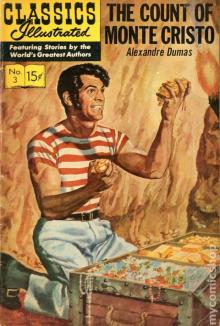 The Count of Monte Cristo, Illustrated
The Count of Monte Cristo, Illustrated Knight of Maison-Rouge
Knight of Maison-Rouge![The Three Musketeers - Alexandre Dumas - [Full Version] - (ANNOTATED) Read online](http://i1.bookreadfree.com/14/the_three_musketeers_-_alexandre_dumas_-_[full_version]_-_annotated_preview.jpg) The Three Musketeers - Alexandre Dumas - [Full Version] - (ANNOTATED)
The Three Musketeers - Alexandre Dumas - [Full Version] - (ANNOTATED)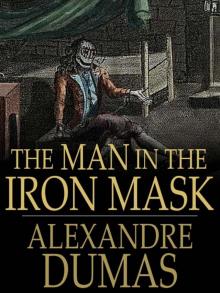 The Man in the Iron Mask
The Man in the Iron Mask The Count of Monte Cristo (Penguin Classics eBook)
The Count of Monte Cristo (Penguin Classics eBook) Count of Monte Cristo (abridged) (Barnes & Noble Classics Series)
Count of Monte Cristo (abridged) (Barnes & Noble Classics Series) The Women's War
The Women's War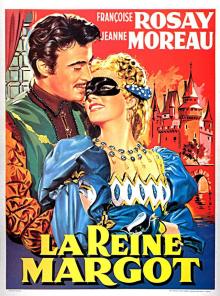 La reine Margot. English
La reine Margot. English The Vicomte de Bragelonne
The Vicomte de Bragelonne__english_preview.jpg) La dame aux camélias (Novel). English
La dame aux camélias (Novel). English The Count of Monte Cristo
The Count of Monte Cristo Balsamo, the Magician; or, The Memoirs of a Physician
Balsamo, the Magician; or, The Memoirs of a Physician Ten Years Later
Ten Years Later The Romance of Violette
The Romance of Violette The Mesmerist's Victim
The Mesmerist's Victim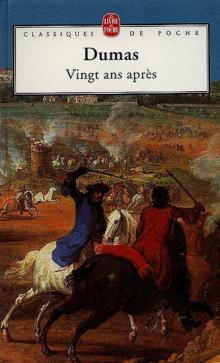 Vingt ans après. English
Vingt ans après. English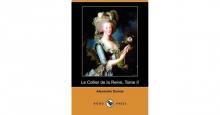 Le collier de la reine. English
Le collier de la reine. English Taking the Bastile; Or, Pitou the Peasant
Taking the Bastile; Or, Pitou the Peasant The Hero of the People: A Historical Romance of Love, Liberty and Loyalty
The Hero of the People: A Historical Romance of Love, Liberty and Loyalty Louise de la Valliere
Louise de la Valliere Les Quarante-cinq. English
Les Quarante-cinq. English Ange Pitou (Volume 1)
Ange Pitou (Volume 1) The Royal Life Guard; or, the flight of the royal family.
The Royal Life Guard; or, the flight of the royal family.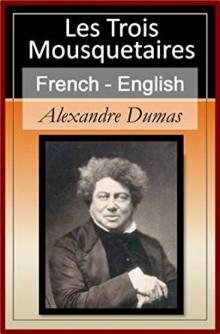 Les trois mousquetaires. English
Les trois mousquetaires. English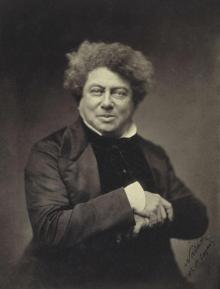 Une fille du régent. English
Une fille du régent. English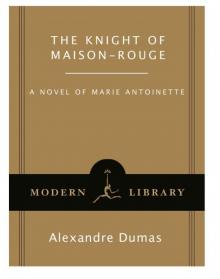 The Knight of Maison-Rouge
The Knight of Maison-Rouge The Count of Monte Cristo (Unabridged Penguin)
The Count of Monte Cristo (Unabridged Penguin) Ange Pitou
Ange Pitou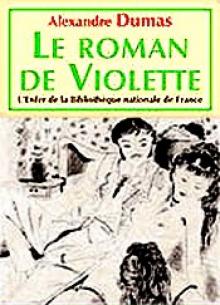 The Romance of Violette (vintage erotica)
The Romance of Violette (vintage erotica) The Three Musketeers
The Three Musketeers Three Musketeers (Barnes & Noble Classics Series)
Three Musketeers (Barnes & Noble Classics Series) Georges
Georges Man in the Iron Mask (Barnes & Noble Classics Series)
Man in the Iron Mask (Barnes & Noble Classics Series) The Red Sphinx
The Red Sphinx